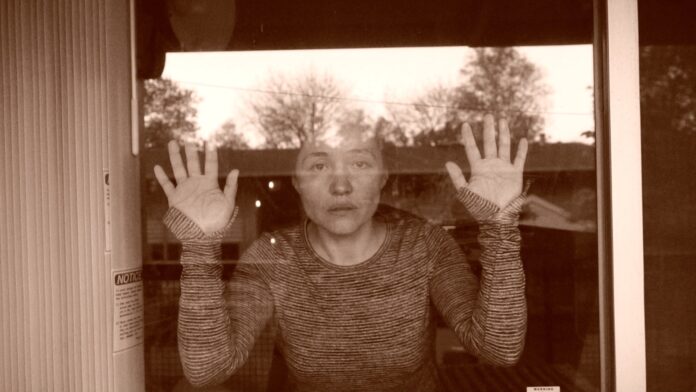Dahlak Brathwaite digitally returned to his alma mater to help students find new meaning
“How do you look at a text and find rhyme? How do you look at a text and find alliteration?” These questions are just two of many posed by Dahlak Brathwaite to the cast of the Theatre Department’s spring play, “AntigoneNOW,” in a workshop held over Zoom. As a playwright, composer and performer specializing in spoken word and hip-hop music, Brathwaite said he believes it is only natural to take 2,000-year-old texts, like the script of “Antigone,” and discover the rhythm and poeticism of the words.
“I did this workshop partly to help the students identify the musicality of the words and of the language,” Brathwaite said. “It’s so poetic and it’s so rich with poetic texture.”
According to Brathwaite, hip-hop elements can bring greater meaning to the play.
“How can we use hip-hop as a way to interrupt, disrupt, accelerate and thrust the language forward?” Brathwaite said. “It’s just about using that type of aesthetic and the way hip-hop approaches language and really digging into that and seeing how that element and that aesthetic could be brought into the work of ‘Antigone.’”
From Davis to New York
Brathwaite started his career at the intersection of spoken-word poetry, hip-hop and as a UC Davis undergraduate in a student-run crew.
“I’ve been in [spoken word] and moving through that world since I was at Davis beginning with a crew […] which was a campus organization that later moved on into a professional collective organization,” Brathwaite said.
The group continued after Davis, and Brathwaite toured universities throughout the U.S. as a performer. Since leaving the group, Brathwaite began studying musical theater writing in an MFA program at New York University and has composed multiple plays — his most recent being a solo piece entitled “Spiritrials,” which he is scheduled to bring to Davis this upcoming winter.
“I’ve been making my way in the theater world and just getting to this point where I’m beginning to have the opportunity to have my own work produced and do the type of work that I’m interested in, which is finding some plane between music and theater, specifically hip-hop music and theater and using spoken word poetry as a vehicle of narration,” Brathwaite said.
Beyond the workshop with its cast members, Brathwaite will also be composing music for “AntigoneNOW.” Returning to Davis and becoming involved in the most recent endeavor of the Theater Department is particularly significant for him, as a UC Davis alumni.
“I started out working in the Theater Department when I was there, and now I’m out in the world with it,” Brathwaite said. “There’s something special to me about coming back.”
Poetry in the written word
During the workshop, Brathwaite had the students focus on what he called “performance poetry.” He pulled different pieces from the play’s text and asked students to recite each section according to a certain rhythm in addition to encouraging movement to accentuate their words. According to Margaret Kemp, associate professor of theatre and dance, although this combination of hip-hop and classical theater might seem unconventional, hip-hop’s emphasis on language and the order of language can be useful when considering ancient works like “Antigone.”
“It’s interesting to think about hip-hop,” Kemp said. “A lot of people don’t realize how much it has in conversation with classical work because it’s really specific about how language is used, and trying to think about how you organize language, as an actor or a writer, influences the meaning.”
For Mayuko Agari, a cast-member and Japanese exchange student, the workshop’s emphasis on the delivery of words and identifying patterns within a given text made the play sound more interesting.
“I think the hip-hop workshop was really important to us in the way that he gave us a way to get out of our stereotype about theatrical speech,” Agari said. “We did an exercise in which we unusually emphasized a repetition of certain words. It was a good opportunity for us to break the walls we have created unconsciously.”
Art over the internet
In adapting to the challenges posed by COVID-19, the cast members of the play participated in the workshop from remote locations around the world, with a few students even joining the Zoom call at 2 a.m. In addition to these challenges, attempting to synchronize and teach complex rhythms is difficult when using a medium of communication with lag time, Brathwaite said.
“I’m doing a workshop all about timing and all about music and music is heavily based on timing, it’s heavily based on being able to hear one another,” Brathwaite said. “Like all things, I just had to be creative. It became more individualized, just because there was less group dynamic work that we could do.”
Despite these difficulties, Kemp believes students are adapting well to working remotely.
“I think because the approach to acting and performance uses a lot of the energetic work of Michael Chekhov, the students are actually saying ‘You know what, I can feel somebody’s energy through the internet,’” Kemp said. “The students are starting to see the possibilities in the virtual world beyond the smallness of the device.”
Written by: Sophie Dewees — features@theaggie.org




